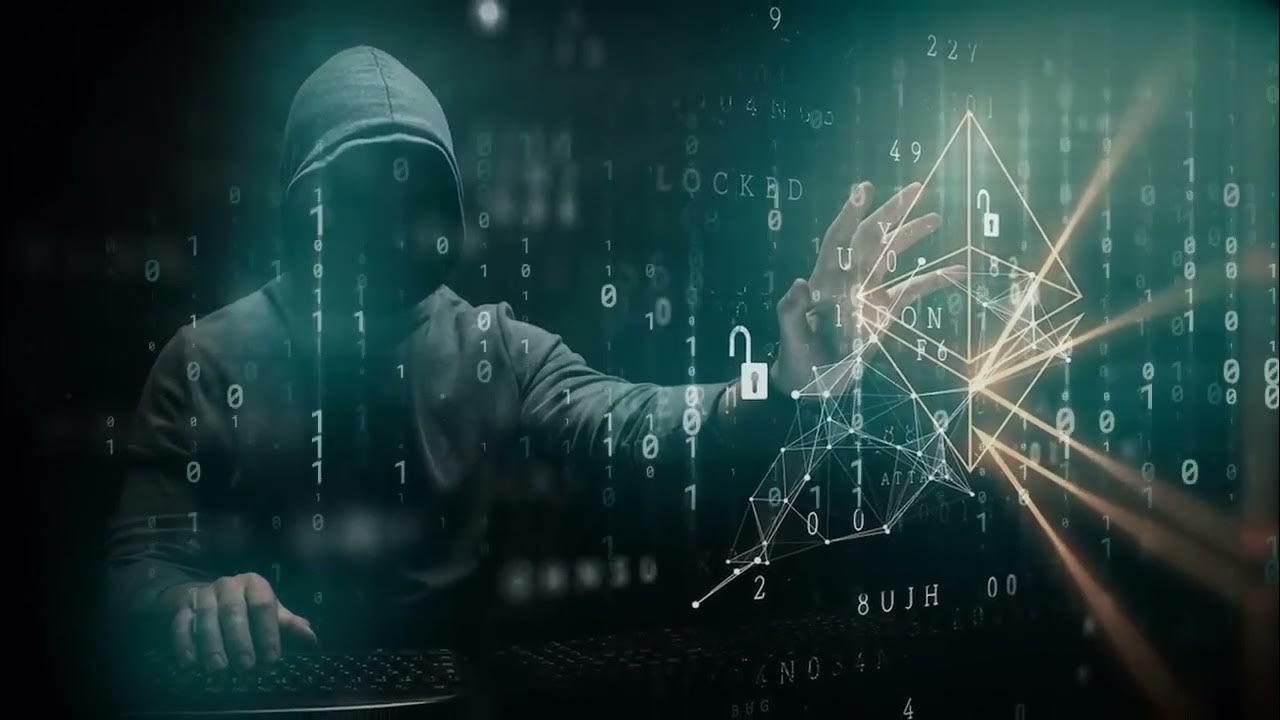Blockchain: The Foundation of the Future
Summary
TLDRThe transcript discusses the profound transformation brought about by the internet and blockchain technology, marking a shift from traditional systems to a decentralized, transparent future. The speaker highlights the power of blockchain in creating a more resilient and accountable system, offering security through its distributed nature. Despite concerns, the future is envisioned as a seamless, machine-to-machine economy with millions of transactions per second, revolutionizing industries such as commerce and healthcare. The speaker emphasizes the importance of building scalable systems and making blockchain more accessible for global participation.
Takeaways
- 😀 We are living in a period of extraordinary change, with technology reshaping the world in unprecedented ways.
- 😀 200 years ago, the majority of people lived in a static world as farmers, isolated from global trends, with little change in their daily lives.
- 😀 The internet revolution has collapsed global space, providing new avenues for communication, human interaction, and wealth creation.
- 😀 While the internet has democratizing potential, it has not fully achieved this, but blockchain represents the next step toward this goal.
- 😀 Blockchain technology is transforming capital markets by introducing more transparency, accountability, and resilience.
- 😀 The blockchain is a decentralized system that ensures transparency and security, making it nearly impossible to hack or alter data.
- 😀 Unlike centralized systems, blockchain does not have a single point of failure, offering a more secure and resilient alternative.
- 😀 Trust in blockchain will grow as people recognize its security and resilience, making it an integral part of future systems.
- 😀 Blockchain is poised to revolutionize multiple industries, including commerce, healthcare, and finance, by providing secure, transparent systems.
- 😀 The technology is still in its early stages, with ongoing work needed to improve scalability, privacy, and user accessibility.
- 😀 The future of blockchain includes systems capable of handling millions of transactions per second, potentially evolving into a machine-to-machine economy.
Q & A
What does the speaker mean by 'extraordinary change' in today's world?
-The speaker refers to the rapid and transformative shifts happening in various sectors such as technology, communication, and political landscapes. These changes are so profound that no one has experienced 'normal times' as people did in the past, particularly 200 years ago when life was largely static and predictable.
How did life differ 200 years ago compared to today?
-200 years ago, most people lived in agrarian societies and were limited to small geographical areas. They depended on weather patterns and lived simple, localized lives. In contrast, today’s world is shaped by rapid technological advancements that connect people globally and create new opportunities for interaction and wealth.
What role does the internet revolution play in today's changes?
-The internet revolution has dramatically collapsed space by allowing global communication and interaction. It has opened new avenues for human connection and wealth generation, fundamentally altering how people live, work, and interact across borders.
Why is the blockchain seen as a positive shift in capital markets?
-Blockchain offers transparency, security, and decentralization, which addresses some of the issues with traditional centralized systems. It promotes more accountability and enables better trust in transactions, making capital markets more resilient and efficient.
What is the significance of the blockchain's decentralized nature?
-Blockchain's decentralized nature means that no single entity controls the system. The ledger is distributed across thousands of computers, making it harder to manipulate or fail. This reduces risks like hacking and fraud, offering greater security and reliability in transactions.
Why is blockchain considered more resilient than centralized systems?
-Centralized systems rely on a single point of control, which makes them vulnerable to failures and attacks. Blockchain, on the other hand, operates through a distributed ledger, making it almost impossible for one entity to alter or delete information without controlling the entire network.
How will blockchain technology impact various industries?
-Blockchain is expected to revolutionize several industries including commerce, healthcare, and finance by improving transparency, security, and efficiency in transactions. It will also drive innovation by enabling new business models and reducing the need for intermediaries.
What are the challenges blockchain technology currently faces?
-Blockchain is still in its early stages, and there are challenges related to scalability, privacy, and user accessibility. More work is needed to improve the protocol and application layers to handle higher transaction volumes and offer better privacy protections for users.
How does the speaker envision the future of blockchain technology?
-The speaker envisions a future where blockchain systems achieve extremely high transaction throughput, potentially millions or even infinite transactions per second. Additionally, blockchain will integrate with machines and sensors, enabling a machine-to-machine economy that further enhances automation and efficiency.
What does the speaker suggest will happen in 10 to 50 years regarding blockchain technology?
-The speaker believes that in 10 to 50 years, people will no longer have the concerns or doubts that many have today about blockchain. It will become an integral part of daily life, so much so that its security and decentralized nature will be taken for granted.
Outlines

Cette section est réservée aux utilisateurs payants. Améliorez votre compte pour accéder à cette section.
Améliorer maintenantMindmap

Cette section est réservée aux utilisateurs payants. Améliorez votre compte pour accéder à cette section.
Améliorer maintenantKeywords

Cette section est réservée aux utilisateurs payants. Améliorez votre compte pour accéder à cette section.
Améliorer maintenantHighlights

Cette section est réservée aux utilisateurs payants. Améliorez votre compte pour accéder à cette section.
Améliorer maintenantTranscripts

Cette section est réservée aux utilisateurs payants. Améliorez votre compte pour accéder à cette section.
Améliorer maintenantVoir Plus de Vidéos Connexes

Chapter 2: Part II - Blockchain Technology (Video)

Blockchain Technology Simply Explained

What is DeFi in Crypto? 🧐 Decentralized Finance Explained! 🧠 (Ultimate Beginners’ Guide on DeFi📚)

Bridging Blockchain & Traditional Economy | BEF SF 2018

How the blockchain is changing money and business | Don Tapscott

21 Kunci Rahasia Untuk Memahami Bitcoin
5.0 / 5 (0 votes)
